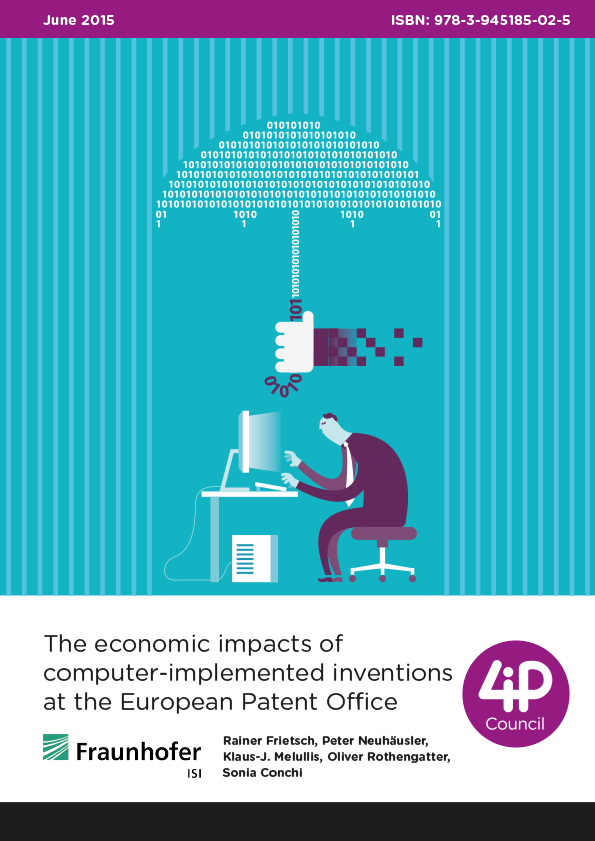1 Executive Summary
We apply a rather “conservative” definition of Computer-implemented inventions (CII), strictly excluding “software as such” – in consequence, our data are mini- mum numbers
Since about 2002, more than 35% of total filings at the EPO are CII patents.
Non-EPC members have higher shares of CII patents at the EPO than EPC member countries.
Germany is able to afford a rather low share of CII in total filings of about 21.5% in the 3-years period 2009-2011.
However, the shares of CII patents also filed at the international level (EPO) is higher for CII than for the total of German patents, hence they are more rele- vant for the international competitiveness.
CII more frequently target international markets, thereby securing international competitiveness – this holds at least for German applicants.
CII plays a more important role in a number of sectors in Germany than in many other countries.
Compared to all countries (54%), the share of “Computer, electronic and optical products” in total CII filings is lower in Germany (35%). This means that in Germany the role of CII in other sectors is higher than in most other countries.
CII plays a more important role in a number of sectors in Germany than in many other countries.
The most important motive also for CII patenting is the freedom to operate motive, followed by market motives, whereas exchange motives are less important. For large enterprises, all three motives (freedom to operate, exchange, and market) to file CII patents are more important than for SMEs.
The vast majority of respondents with CII patents expects no or low positive consequences of a restrictive amendment of patent law for CII as neutral or even low.
The impact on employment and market shares is rated higher by SMEs.
In total, almost 1.4 million jobs were directly or indirectly dependent on CII in 2010 in Germany. These are 3.9% of total employment.
In the manufacturing sector 14.2% (abs.: 963.000) of the jobs are dependent on CII






